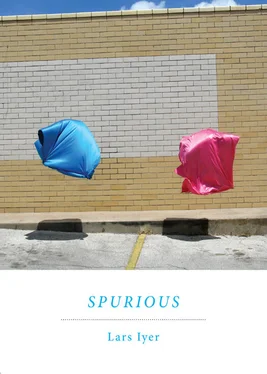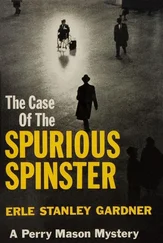Conversation! All real conversation is messianic, W. says. Not the content of what is said — quite the contrary, but the fact that it is said at all, that speaking is possible, says W., impressively. But what would I know of that? — ‘You’re conversationally lazy’, W. says. ‘You can’t be bothered, it’s obvious to anyone. You never feel responsible for your conversation. You never want to drive it to greater heights’.
For his part, W. is never happier than when he is pressing a conversation towards the messianic. He always has the sense his conversationalist is about to say something great, something life-changing. That’s what a conversation should be, W. says, every conversation: something great, something life changing. But of course I’d have no sense of that.
Every conversation must be driven through the apocalyptic towards the messianic , that’s W.’s principle; the shared sense that it’s all at an end, it’s all finished. He loves nothing better than conversations of this kind, W. says, when everything’s at stake, when everything that could be said is said.
That’s when messianism begins, W. says. You have to wear out speech, to run it down. And then? And then, W. says, inanity begins, reckless inanity. The whole night opens up. You have to drink a great deal to get there. It’s an art. The Poles have it, W. says. They understand what it is to drink through the whole night. And that’s what the Hungarians are doing in the bars in Béla Tarr films, W. says. Steadily, patiently, they’re drinking their way through the night.
All drunks have something of the Messiah about them, W. says. They speak a lot, for one thing. They feel they’re on the verge of something, some great truth. He does when he drinks, W. says. Once he starts drinking, says W., he can never stop, it’s quite impossible.
It’s because of the faith it gives him, says W. It’s because of what drinking reveals: the whole night, the apocalypse, but also the patience to get through the apocalypse, to dream of the twenty-second century, or the twenty-third, when things might get better again.
The whole flat is now full of mould spores. The warm air is soupy; it’s jungle hot and damp, and smells of rot and spores. The oven, new in September, is stranded in the bathroom. The hallway’s full of mouldy bits of wood, and another sporey cupboard is pressed up against the radiator. At night, going to the bathroom, I have to step over damp wood and pass between damp cupboards.
The smell is overwhelming. I feel faint, I tell W. on the phone. The other day I went outside to look at the kitchen wall. Naked brick, exposed. I took a stick of bamboo and idly scraped out the stuff between the bricks. But it was the brick itself that started to come off, I tell W. The brick itself, rotting as I touched it. It’s wet and runny, I tell him. It comes off on your nails as you scrape it.
Inside, I tell him, I study the kitchen walls, watching for where damp comes and goes. I take the fan heater in there, pointing it at this or that part of the wall. It will dry after an hour or so. Dry, but then — in another hour, or two more — pinpricks of moisture appear on the whitened plaster. It’s returning. It’s coming back, the damp. And then pinprick joins to pinprick, and soon the whole wall’s the same clammy brow it was before the drying.
But still I watch, I tell W. Still, nightly, I wield the heater. Is the wall drying out? Has it begun to dry out? I ask myself like a madman. Or is it a mirage, a mirage of damp? Have the spores got to me? Has the mould coated every passageway of my lungs and sent me mad? True, I have a new and persistent cough. I cough all the time — today I thought I’d lose my voice, I tell W. One day I’ll wake up mute in this flat of damp. Mute in the damp, spore-filled, choking. And one day, as I approach the walls, I’ll disappear into them, damp returning to damp.
W.’s been ill, he says. Again? Yes, again. He gets up, goes to work, and comes back to sleep, that’s all. — ‘I don’t know how Kafka got anything done. It’s terrible being ill’. I ask him whether his houseguest has gone. She has; and Sal’s still away, so his house is becoming like Howard Hughes’, he says. With bottles of urine everywhere? He hasn’t cut his hair and nails, says W. He’s like a wild man.
Has he had any thoughts from his illness? — ‘None’. Has his new book advanced any further? — ‘No’. Has he written our joint abstract? — ‘No again’. And what of my news? he asks me. I tell him of my plans, my new schemes. — ‘Every year a new stupidity! It’s all begun afresh for you, hasn’t it?’, says W. ‘What new plans do you have? Where will your idiocy lead you?’
I’m at my most idealistic at the start of the year, W. notes, whereas he’s at his most gloomy. ‘Idiocy protects you’, he says. He reminds me of my great follies in the past. — ‘Do you remember your Hindu period? Your plans to learn Sanskrit and become a scholar of Hinduism?’ And then there were my plans to learn music theory and become a scholar of music . We both marvel at them. ‘What’s it to be this year?’, says W., ‘go on, I need a laugh’.
The new year! It’s always the same! New ideas! New follies! But W. is ill, and has no plans. Bottles of urine everywhere, hair and nails uncut, scrabbling through piles of unfinished writing, he staggers through the day.
W. is ill and so am I. But W. will never believe I am as ill as he is. I haven’t moved from my sofa in three days; he hasn’t moved from his in a week. I’ve done little but watch DVDs; he hasn’t been able to muster the concentration necessary to watch a film. I’ve lost my appetite, but W. has forgotten he ever had an appetite. And above all, I’m capable of writing, I’ve lost my appetite , whereas W. hasn’t touched a keyboard for a week. Even my illnesses are affectations, W. says.
‘You don’t know what it means to be ill, night and day. Like Kafka. Like Blanchot’, says W. W.’s illness is grand, mine is petty. His draws him closer to the masters, mine only reveals how far from them I have always been. — ‘What amazes me’, says W., ‘is that they could ever write a line’. W., in his illness, can write nothing.
Colds come from China, says W. They spread west across the mountains and the steppes. It’s a tremendous journey. From China to Plymouth, but a cold’s reached him nonetheless, although he calls it a flu, since he’s always been prone to exaggeration.
W. was impressed at my recent depression. ‘It’s a sign of your seriousness’, he says, ‘or that even an idiot like you cannot escape seriousness’. These are desperate times, says W., even I must have a sense of that.
W.’s always admired my whining, ‘like a sad chimp, at the limits of its intelligence’, but my depression has taken me beyond that, hasn’t it? ‘You were silent for once’, W. says. I didn’t ring him, or respond to emails … No chatter from me: that’s when he knew things were really bad, W. says.
Of course we’re never really depressed, W. says. We know nothing about real depression. We’re men of the surface, not of the depths. What do we know of those blocks and breaks in the lives of real thinkers? What can we, who are incapable of thought, understand of what the inability to think means for a thinker? And what of real writer’s block — what understanding can we have of that terrible incapacity to write a line for those who have thoughts to set down?
We’re melancholic, that W. grants. Who wouldn’t be? Melancholic, vaguely rueful, knowing we should not be where we are, that we’ve been allowed too much, overindulged … And for what? With what result?
True thoughts pass infinitely far above us, as in the sky. They’re too far to reach, but they’re out there somewhere. Some place where we are not. Some great, wide place where thoughts are born like clouds over mountains.
Читать дальше












